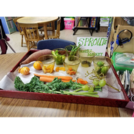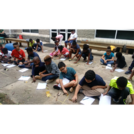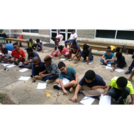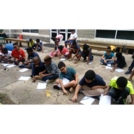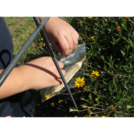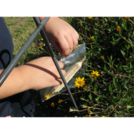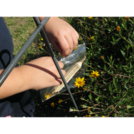Weaving Climate, Environmental Justice and Civic Engagement into Your Courses
Short Description:
As the inequitable impacts of climate change become more evident and destructive, it is essential for climate and environmental justice, as well as methods of civic engagement, to be taught at a high-level to college-level students. This book provides real examples of how professors at the University of Washington integrated these critical issues into their teachings, both in targeted lessons and as throughlines across an entire course. These samples of how environmental and climate justice have been successfully integrated into higher-level education can serve as both a record of the UW's progress towards centering JEDI at the heart of all students, and as a model for future instructors to use as they work to incorporate more aspects of justice and engagement into their own material.
Long Description:
With the increased effect of anthropogenic climate change, the impact of environmental issues on human societies has never been more essential to understand. With science-backed research showcasing that human activities are actively worsening the effect of many environmental issues including severe temperatures, natural disasters, and biodiversity loss, there is severe need for all, whether we are scientists, activists, educators, or policy-makers, to take action. However, the global nature of both our society and the dangers we are facing necessitates careful consideration in analyzing and combatting environmental issues in a modern world. To properly adapt to and mitigate these issues, which may directly target specific communities or affect societies across the globe, not only do we need a proper grasp of environmental and climate science, but we need to ensure that solutions are mindful of the communities and ecosystems that are affected. We must not be content with climate and environmental solutions that fail to consider diversity, equity, inclusion, and accessibility as key tenets. In short, justice must be at the heart of our climate and environmental work going forward.
Yet, facilitating just solutions cannot be done while the institutions that teach the next generation fail to highlight climate and environmental justice in their teachings. Without a natural and focused inclusion of DEIA values in environmental courses in higher education, there is reduced capacity for students who wish to engage to garner an understanding of what just solutions look like and how to implement them. This book seeks to remedy that gap.
Throughout this book, we synthesize the current efforts towards including climate, environmental justice, and civic engagement in courses taught at the University of Washington – Seattle. These examples range from specific lessons on environmental injustice to course-long integration of climate justice values, and include course details, lesson plans, and other resources provided by course instructors in an easy-to-access format. The chapters in this book each constitute a real method of integrating climate and environmental justice into a course, and thus provide a bounty of instruction for increasing the inclusion of justice in course material for instructors across any discipline. Lessons will be regularly added to the book as they are implemented and adapted. The existence of this book marks not only the history of environmental justice in courses at the UW, but also the emphasis on the topic of justice that the college is placing in the current day, as well as serving as a guide or model for instructors to use as more courses begin to fully integrate justice into their curriculum. Through this work, we can be more reliably assured that the people we are training to practice civic engagement and climate and environmental action can not just protect the planet, but preserve the life of the people, communities, and ecosystems who depend on it.
This book has been created with support from the University of Washington Program on Climate Change, the UW Program on the Environment, and the University of Washington College of the Environment, especially from material created at our annual Climate and Environmental Justice Faculty Institute.
Word Count: 9944
(Note: This resource's metadata has been created automatically by reformatting and/or combining the information that the author initially provided as part of a bulk import process.)

